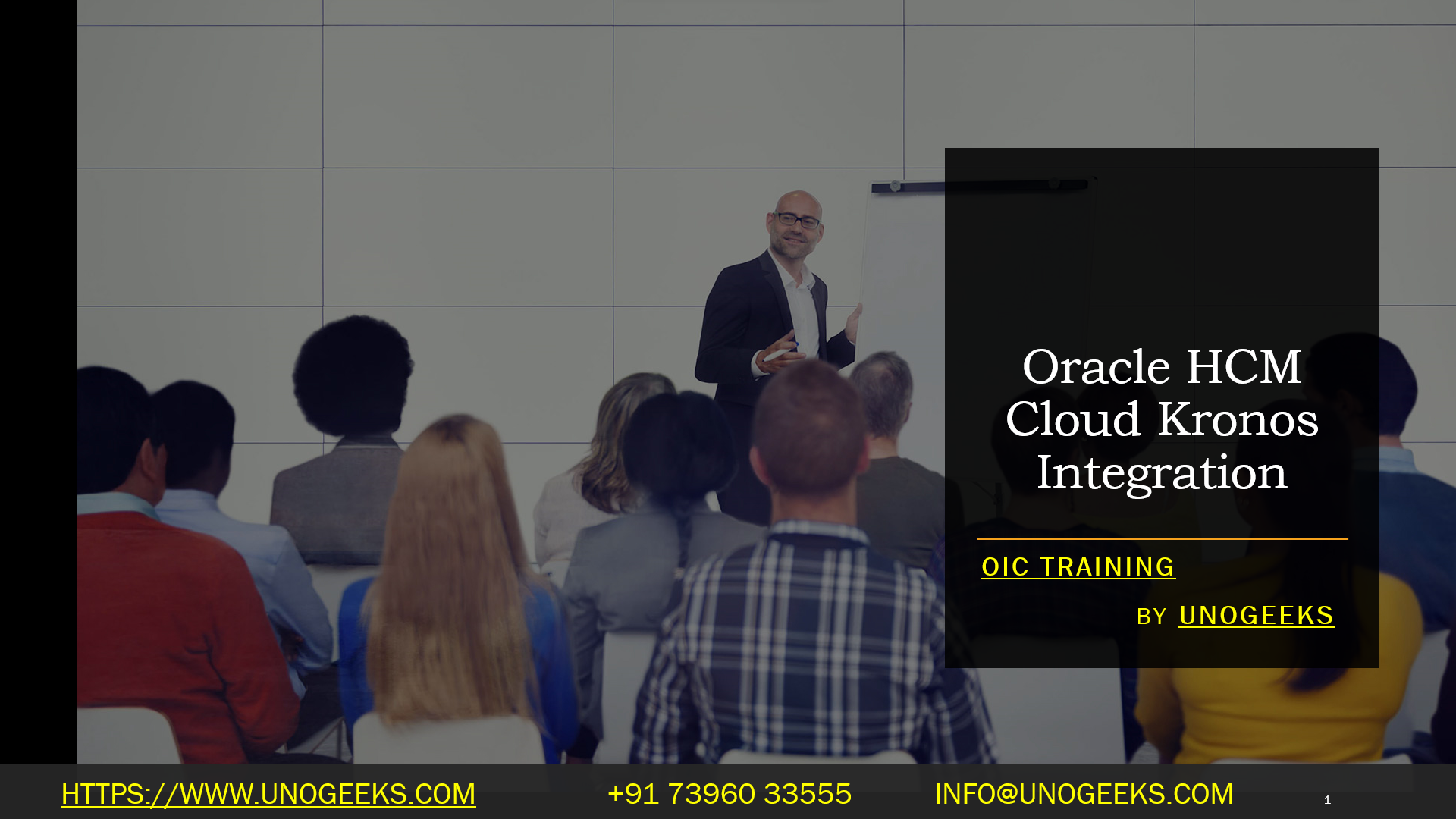Oracle HCM Cloud Kronos Integration
Oracle HCM (Human Capital Management) Cloud is a comprehensive suite of HR management solutions that can be integrated with other software to enhance its functionality. Kronos is one of those systems that can be linked with Oracle HCM Cloud, particularly in the area of workforce management.
The integration between Oracle HCM Cloud and Kronos provides a streamlined approach to managing various aspects of the workforce, including time and attendance, scheduling, leave management, and more.
Here are some key considerations for this integration:
Integration Platform: To facilitate the integration, you may need to use middleware or an Integration Platform as a Service (iPaaS) tool. Many organizations choose to use Oracle’s own Integration Cloud Service (ICS) or other third-party integration tools that are designed to work with both platforms.
Data Mapping and Transformation: You will need to map the data fields between the Oracle HCM Cloud and Kronos to ensure that the data is transferred accurately. This may include transforming data types, formats, and values to match the expected inputs of each system.
Authentication and Security: Both Oracle HCM Cloud and Kronos will have specific security requirements for connecting and transmitting data. Ensuring secure connections using proper authentication and encryption methods will be vital.
Real-Time vs. Batch Integration: Depending on your needs, you may choose to integrate the data in real-time or in batches. Real-time integration allows for immediate updates between systems but can be more complex to implement. Batch integration might be more appropriate if the data doesn’t need to be updated instantly.
Compliance Considerations: When integrating these systems, especially in the context of HR and workforce management, compliance with relevant regulations (such as GDPR, HIPAA, etc.) must be ensured.
Monitoring and Maintenance: Regular monitoring and maintenance are required to make sure the integration continues to function correctly. Consider building in alerting and logging functionality to aid in troubleshooting any issues that may arise.
Vendor Support: Both Oracle and Kronos may offer support or consulting services to assist with the integration. Leverage these resources if available, as they can provide valuable insights and best practices tailored to these specific platforms.
Documentation and Guidelines: Make sure to refer to the latest documentation and guidelines provided by both Oracle and Kronos for specific details on how to best approach the integration.
Testing: Thorough testing in a non-production environment is essential to ensure that the integration works as expected before going live.
Custom Development: Depending on the specific needs of your organization, custom development may be required to achieve the desired functionality. Engaging with experienced developers who have worked with both systems can be beneficial in this regard.
Oracle Integration Cloud (OIC) Training Demo Day 1
Conclusion:
Unogeeks is the No.1 Training Institute for OIC. Anyone Disagree? Please drop in a comment
Please check our Oracle Integration Cloud Training Details here OIC Training
You can check out our other latest blogs on Oracle Integration Cloud in this OIC Blogs

———————————-
For Training inquiries:
Call/Whatsapp: +91 73960 33555
Mail us at: info@unogeeks.com
Our Website ➜ https://unogeeks.com
Follow us:
Instagram: https://www.instagram.com/unogeeks
Facebook: https://www.facebook.com/UnogeeksSoftwareTrainingInstitute
Twitter: https://twitter.com/unogeeks
